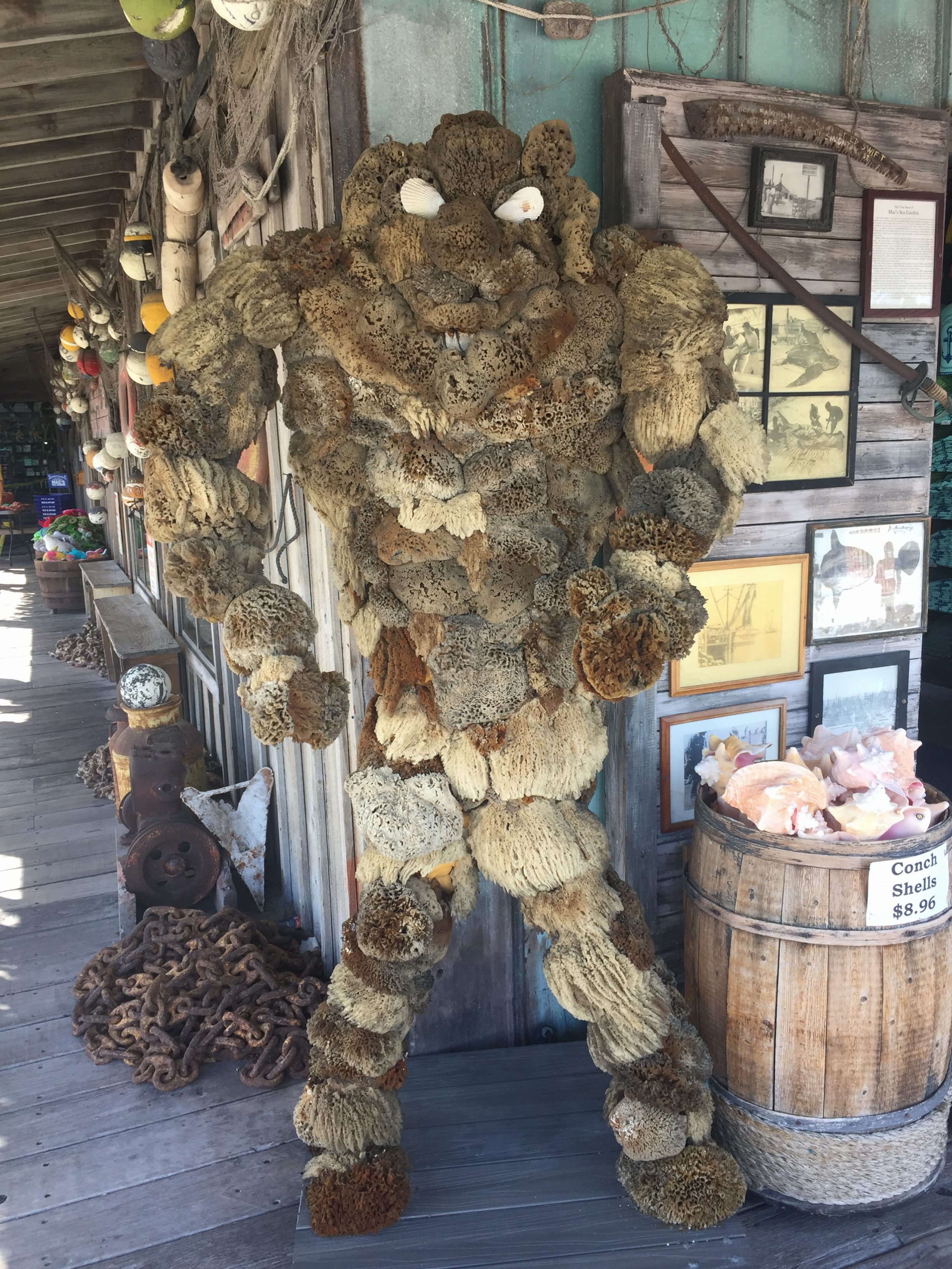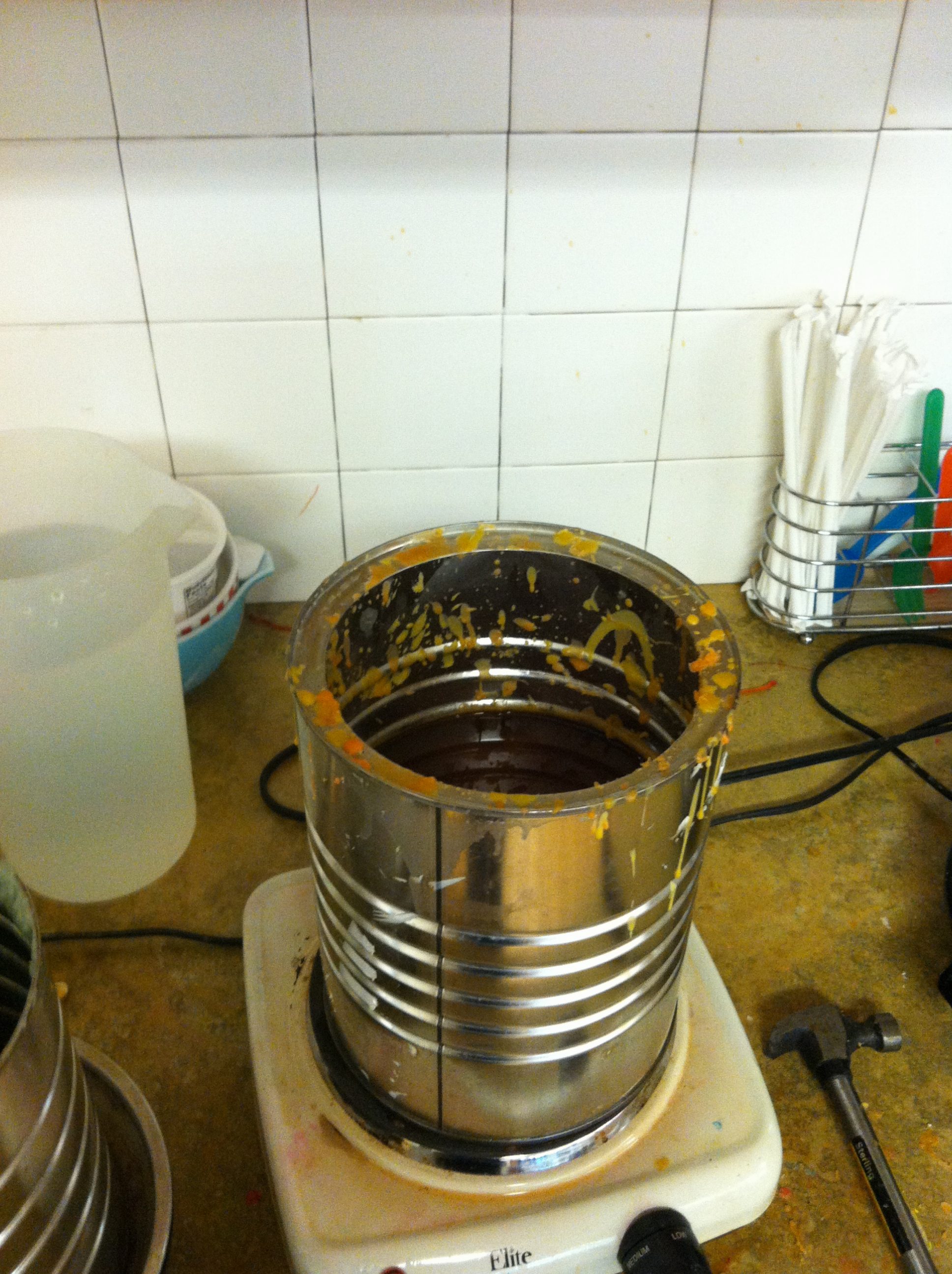Finishing
“That one’s a real unique piece,” a woman says, approaching me from the side, “It’s been carved from a single piece of locally sourced wood.”
“Oh?”
“The challenge for any of our furniture artists is to imagine the finished piece in the untouched shapes that nature provides.”
“The unfinished piece.”
“Of course,” she says, smiling like she doesn’t put up with this every day, “The unfinished piece.”
‘There is a trait, attributed to the Persians, the Amish, and whatever Native American tribe happens to be convenient in conversation, that ancient artisans would sew, chisel, or bead purposeful imperfections into their work, so as not to displease the gods. It’s a nice idea and one that ‘The Unfinished Furniture Co.’ fails entirely to enterprise on.
The items for sale are unusable in frustrating ways- tables that lean dangerously, chairs that splinter and snag. There is a door too wide for its frame, a dresser with no drawers. The handiwork is not particularly good, the prices not particularly cheap. ‘The Unfinished Furniture Co.’ has taken an idea and run with it unabashedly. It is the collision of capitalism and anarchy, the result of a market that allows for anything as long as money is involved. Held aloft by the weighted purses of…’
Shitholes goes on for a few paragraphs, illustrating the author’s opinions of a company that specializes in conversation pieces. I look around the showroom floor and wonder if I shared the same opinion before I read the piece or if the pressure of my potential authorship sways me. I try to like the ‘stool.’ I try to appreciate that the artist has left all of the nails exactly half hammered, and that the actual finish, surely not without irony, has been applied expertly around the sharp protrusions.
It’s painstaking and ugly and useless and looking at it makes me grate my teeth. Everything in the store is a few hour’s work from being a complete piece. Each piece, completed, would be entirely average. Even the underlying principle of the place seems half-realized at best. If the un-finishing of something is meant to evoke an emotion or represent a greater idea, it falls flat in the face of their exorbitant prices and sterile space.
“Do you want to meet the artist?”
Most employees would have given up by now but ‘The Unfinished Furniture Co.’ is not centrally located and the parking lot is conspicuously empty. There’s no reason to not keep me on the hook.
“The same person does all of this?”
“Of course; his workshop is in the back.”
While the woman is putting on her jacket I wonder if she knows already that I won’t be purchasing anything. I wonder this a lot about retail employees. Having worked in several little stores over the course of my life I think I’ve experienced feelings of both challenge and indifference toward the wares and toward people like me, people who are only in a place to ask questions or waste time.
Thinking back, asking questions and wasting time has made up the bulk of my life.
“This way!”
There was a short snowfall several days ago and, since then, the world has frozen. There is no wind, no further precipitation. More than a simple nothing, the world seems to resent the small, necessary disturbances of unsleeping life. Every footfall in the snow is frozen there, accusingly, so that others might be discomfited by the broken symmetry.
The woman and I carve a new path, out the back of the main building and toward a small, shuttered warehouse. She doesn’t wait to knock or to kick the snow off her shoes. She lets herself in and gestures, smiling, for me to follow. It is the last friendly thing I see her do.
“You’ve got a guest, Rick!” she yells.
The workshop is dark and stuffy. It smells like smoke, the way a place smells when the chimney hasn’t been cleaned, when it’s tightened up like a sore throat, like asthmatic lungs. A fire rages in the old wood-burning stove but the glass has blackened and the frantic light is dimmed.
“Rick!” she yells, “Rick, get out here and do your job!”
Several more unfinished pieces stand dejectedly about, potentially more unfinished than those I saw before. Sawdust has piled into corners and around chair legs. It sticks to the snow on my boots. It weighs down a spider web in the rafters.
“Rick!”
The woman lobs an empty beer can at a pile of blankets on a pull-out bed across the workshop. It misses the mark by several feet and clangs loudly off the wall. The blankets stir and groan.
“God damn it, Rick, get up or I’m calling dad in here. He’ll whoop your ass Rick!”
The resting figure stirs immediately, though the movements remain sluggish. A man, dressed in the company’s uniform, emerges and seems to try to pull the blanket over the mattress. He manages it halfway before stumbling to a work bench where he begins to haphazardly sand a small wooden box.
“How long are you going to work on that stupid box, Ricky?”
The man’s voice is barely a mumble:
“Jus’ about done.”
“For real this time?”
“For real.”
“You’ve got a guest, Rick. Someone from the front. Come up and explain your design philosophy.”
“It’s not…” I begin, but Rick has already tossed the sandpaper aside and turned. He keeps his eyes lowered as he approaches and extends his hand for a weak, dusty handshake.
“Name’s Rick McDowell,” he mutters to the floor, “Family owns the business. Y’may notice the work reflects a common theme…”
“Louder, Rick! The man can’t hear you!”
Rick clears his throat.
“…work reflects a common theme. Theme is practical furniture that remains incomplete in construction or design. I was inspired in 96’ when…”
Rick mutters on through a scripted history of his work, occasionally pointing to early projects strewn about the workshop, pieces otherwise indistinguishable from the rest. The woman wanders around behind him, her gait purposefully bored and careless. She collapses a column of beer cans and eyes a TV-dinner stand with disgust.
“…following generations with growing difficulties regarding attention and handiwork my own craft progressed and seemed to catch the attention of the generation previous…”
“Rick,” I whisper, interrupting him once the woman has wandered to the far end of the workshop, “Rick, are you okay? Do you need help?”
“… small stools, ottomans, toilet paper holders… Uh…what?”
“Are you… being kept here? Like a slave?”
“Well, uh…”
“Do they pay you, Rick?” I ask, not sure whether the man is comprehending much of what’s being said, “That woman’s treating you like shit.”
“Family owns the business…” he says, potentially trying to answer the first question, “Sister keeps the place outside.”
“That’s your sister?” I ask in disbelief, “Rick, that doesn’t matter if you think you’re in trouble.”
Rick huffs, his breath heavy with alcohol and some unclear emotion.
“Don’t need help,” he says.
“You’re happy doing this?” I prod, “That showroom makes it look like you’re some sort of hipster artisan, putting shit together and working with your hands and stuff. Like you’re one of those guys with a vision and a nice coffeemaker. You look bad, Rick. This,” I say, indicating the workshop/living space, “looks bad.”
He takes a moment to respond.
“You look bad,” he says.
I take a moment in turn.
“What?”
“You look bad,” he says, raising his voice a tad.
“I didn’t mean to…”
“What are you doing that makes you look bad?” he asks, insisting on the pointed ‘you,’ each time, “I’m making furniture.”
“I’m writing a book,” I tell him, too angry to consider the implications, “I’m… writing a travel book.”
“When are you going to finish?” he asks, “You getting close?”
My pack shifts on my shoulders. It feels heavy suddenly, heavier every second.
“Getting close,” I mutter, “Just a few more places to see.”
“Getting close, huh?”
“Yeah.”
“Will being finished make you happy?” he asks, “Is that what you want? You’re ready to be finished?”
“I…”
-traveler




